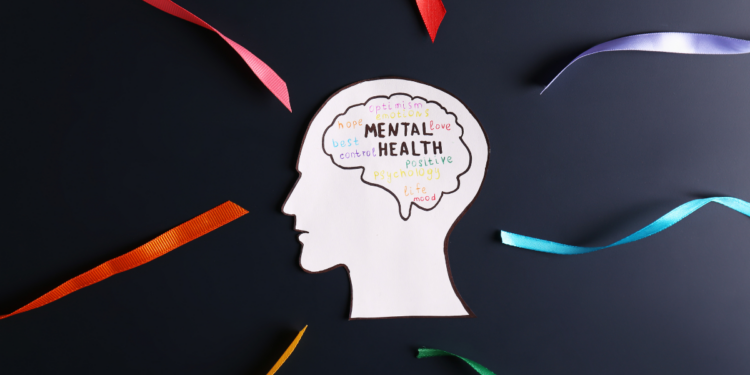Gratitude is more than just saying “thank you.” It’s a powerful mindset that can reshape your perspective, improve your emotional resilience, and enhance your mental health. Backed by science, the practice of gratitude helps you focus on the positives in life, fostering a sense of fulfillment and well-being.
This guide explores the transformative effects of gratitude on mental health, its benefits, and simple practices to cultivate gratitude in your daily life.
What Is Gratitude?
Gratitude is the acknowledgment and appreciation of the good things in life, whether big or small. It’s about recognizing the kindness of others, the beauty around you, or the simple joys that often go unnoticed.
Key Components of Gratitude:
- Recognition: Being aware of the positive aspects of your life.
- Appreciation: Valuing these positives, no matter how small.
- Expression: Sharing your gratitude with others or through personal reflection.
The Science Behind Gratitude and Mental Health
Research has consistently shown that gratitude has profound effects on mental well-being. Here’s how it works:
1. Boosts Positive Emotions
Gratitude activates the brain’s reward system, increasing the release of dopamine and serotonin—chemicals associated with happiness and contentment.
2. Reduces Stress and Anxiety
By focusing on what you’re thankful for, gratitude shifts attention away from negative thoughts, calming the nervous system and reducing cortisol levels.
3. Improves Resilience
Grateful individuals are better equipped to handle adversity, as gratitude fosters a sense of hope and optimism.
Learn more about gratitude research: Greater Good Science Center
Benefits of Practicing Gratitude
1. Enhances Emotional Well-Being
Gratitude cultivates feelings of joy, satisfaction, and connection, helping to combat feelings of loneliness or depression.
2. Strengthens Relationships
Expressing gratitude deepens bonds with others, fostering trust, kindness, and mutual appreciation.
3. Improves Sleep Quality
Studies have found that reflecting on things you’re grateful for before bed can lead to better, more restful sleep.
4. Increases Self-Esteem
Focusing on the positives in your life reduces comparison with others, enhancing self-worth and confidence.
Simple Gratitude Practices for Everyday Life
1. Keep a Gratitude Journal
Write down 3–5 things you’re grateful for each day. These could be people, experiences, or simple joys like a sunny morning or a kind word from a friend.
Pro Tip: Use prompts like:
- What made me smile today?
- Who or what am I thankful for right now?
Explore journaling tools: Positive Psychology Journal Prompts
2. Express Gratitude to Others
Take time to thank someone who has made a positive impact on your life. This could be through a heartfelt message, a phone call, or even a handwritten note.
- Example: Write a letter to a mentor or friend expressing your appreciation for their guidance or support.
3. Practice Gratitude Meditation
Combine mindfulness with gratitude by meditating on the things you’re thankful for.
- How to Practice:
- Sit quietly in a comfortable position.
- Close your eyes and take a few deep breaths.
- Reflect on people, events, or experiences you’re grateful for, allowing positive feelings to fill your mind.
Try guided meditation apps: Insight Timer Gratitude Meditations
4. Create a Gratitude Jar
Place a jar in a visible spot and add a note of gratitude each day. At the end of the month or year, revisit these moments of appreciation.
- Pro Tip: Involve your family or friends to make it a shared practice.
5. Shift Negative Thoughts with Gratitude
Whenever you feel overwhelmed or stressed, pause and think of one thing you’re thankful for. This simple shift can reframe your perspective and help you navigate challenges.
Gratitude in Challenging Times
Practicing gratitude during tough times may seem difficult, but it can be especially impactful. Focusing on small, positive aspects—like support from loved ones or lessons learned—helps build resilience and a sense of control.
Common Misconceptions About Gratitude
Myth 1: Gratitude Means Ignoring Problems
Gratitude isn’t about denying challenges but acknowledging the positives alongside them.
Myth 2: Gratitude Must Be Grandiose
Even small acts, like appreciating a warm cup of coffee, contribute to a gratitude practice.
Myth 3: Gratitude Is Only About Others
While gratitude often involves others, it can also include appreciation for your own strengths and efforts.
Final Thoughts
Gratitude is a transformative practice that nurtures better mental health and a more positive outlook on life. By incorporating simple habits like journaling, meditation, or expressing thanks, you can cultivate a mindset of appreciation that enhances your emotional well-being.
Start small, stay consistent, and let the power of gratitude bring more joy and fulfillment into your life.





















